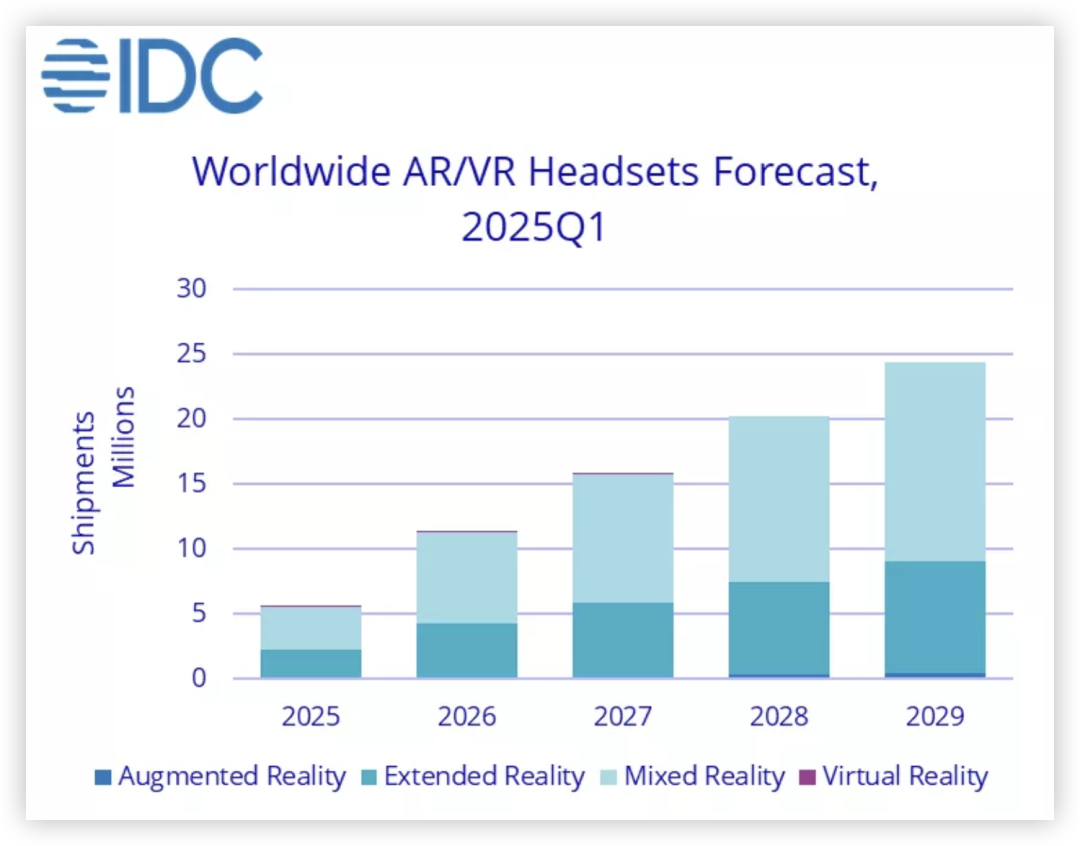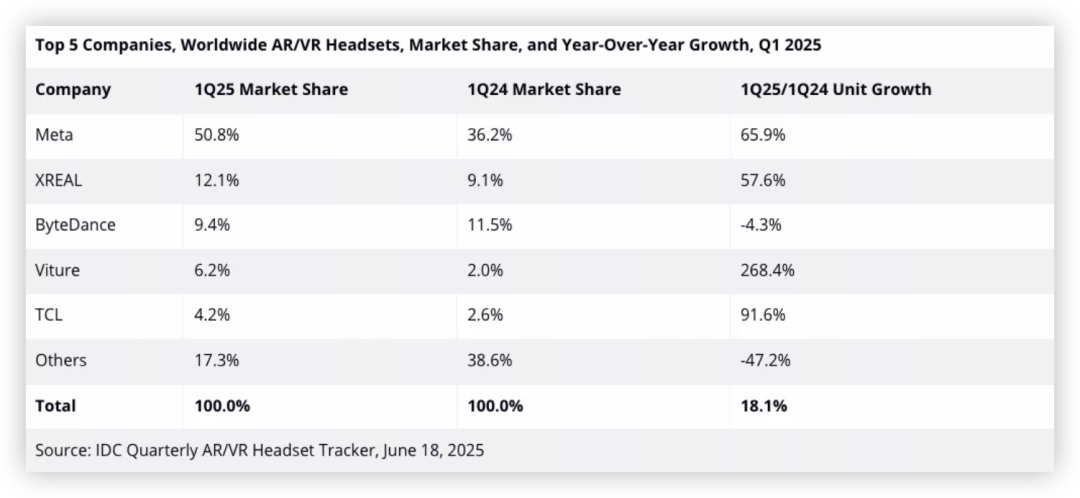IDC Report: AR/VR Market Grows 18% Year-on-Year, Smart Glasses Take Center Stage!

Hello everyone, it's your old friend the Metaverse Detective! IDC's latest survey report is out, so let's take a look together.
IDC Report: AR/VR Market Rebounds, Smart Glasses Take Center Stage
According to the latest report from the authoritative market research firm IDC, the global AR/VR headset market has finally shaken off its gloom and welcomed a long-awaited "second spring," with year-on-year growth reaching 18.1%! Meta, with its strong brand power and the continued success of the Quest series, remains the market leader with a 50.8% share.
But the real highlight is the rapid rise of smart glasses manufacturers like XREAL. Thanks to the outstanding performance of the XREAL Air series, they have surged to second place in the market. Viture and TCL are also making waves, achieving astonishing growth rates of 268.4% and 91.6%, respectively.
Goodbye to Bulky Headsets—Lightweight, Multi-Functional is the New Trend
So why are smart glasses so popular? The answer is simple: they're lighter and more practical!
Remember those old VR headsets? Wearing them felt like having a "big helmet" on your head—bulky and tiring after a while, with limited functionality beyond watching movies or playing games.
Smart glasses are a different story: stylish, comfortable, and extremely versatile. Whether for work, entertainment, or daily life, they fit in anywhere. For example, the XREAL Air 2 Pro weighs just 75g—so light you can barely feel it! No wonder IDC predicts the market is rapidly shifting from dedicated VR devices to more general-purpose MR/AR devices, with smart glasses set to become the mainstream.
Tech Giants Enter the Fray—Who Will Have the Last Laugh?
Besides Meta and XREAL, tech giants like Apple and Google are gearing up to grab a share of this emerging market. So, who will win the "headset war"?
• Meta: With a first-mover advantage, the Quest series keeps innovating, and its ecosystem is becoming more complete. • XREAL: Focused on smart glasses, excelling in product design and user experience—likely to lead the field. • Apple: Vision Pro enters with cutting-edge tech, but its high price may be a hurdle for market acceptance. • Google: The Android XR platform has huge potential and could become the "Android system" of AR/VR, attracting more manufacturers.

Opportunities and Risks—The Future of AR/VR is Full of Imagination
Of course, opportunities and challenges go hand in hand. The AR/VR market faces some notable challenges, such as global economic fluctuations, core technology bottlenecks, and consumer privacy concerns.
Overall, though, the outlook for AR/VR remains very promising. IDC predicts that from 2025 to 2029, the global AR/VR market will grow at an average annual rate of 38.6%, eventually surpassing the pandemic-era peak.
As a seasoned Metaverse Detective, I'm confident in the future of AR/VR. As technology matures and applications diversify, AR/VR will profoundly change how we live and work, ultimately becoming a key gateway to the metaverse era.
Are you ready to embrace this future full of possibilities?
Reference: https://my.idc.com/getdoc.jsp?containerId=prAP53608225
分享文章
3篇相关文章
AR/VR Market Rebounds Strongly! IDC's Latest Report Reveals a New Industry Landscape
2025-06-24
IDC's latest report shows AR/VR device sales surged 18.1%, signaling the industry is shaking off its slump and entering a new growth cycle. Who will lead this blue ocean? This article takes you inside the trends!
Farewell Adobe Aero: Where Does the AR Creation Path Lead? Deep Analysis of Service Shutdown Impact and Efficient Alternatives!
2025-08-14
Adobe Aero is about to shut down, causing shockwaves in the AR creation community. This article provides deep analysis of the shutdown impact and practical alternatives for users to help you transition smoothly and continue on your AR creation journey.
Cadillac's 'Vision' Opens Wide: How AR-HUD Technology Reshapes Future Driving Experience?
2025-08-13
General Motors' Cadillac brand is about to introduce revolutionary AR-HUD technology, which is not just a simple upgrade, but a disruptive beginning of future driving experience.